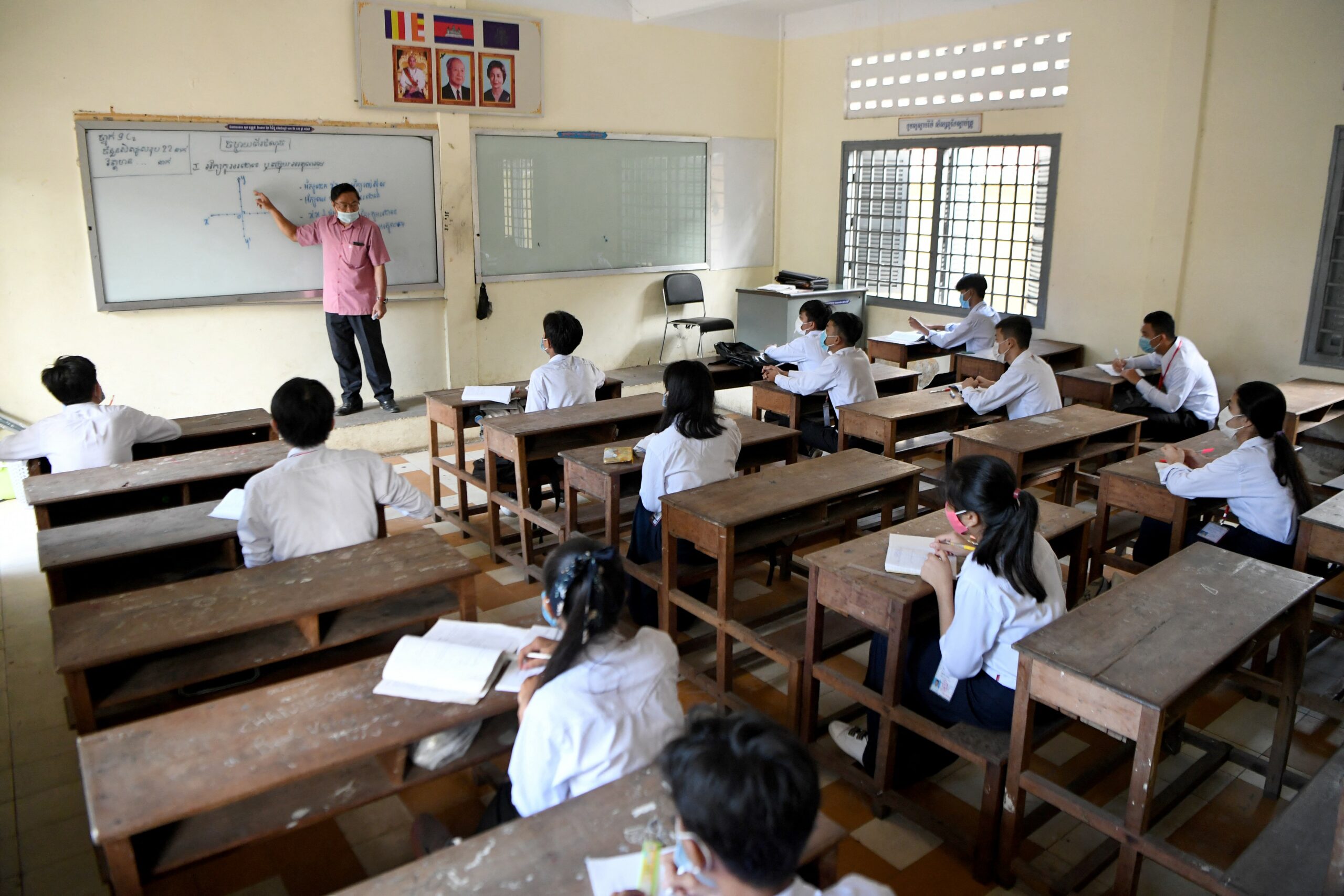World Children’s Day, originally Universal Children’s Day, was established in 1954 by the UN to “promote international togetherness, awareness among children worldwide and improving children’s welfare.”
On 20 November 1959 the UN General Assembly adopted the Declaration of the Rights of the Child, followed 30 years later by the Convention on the Rights of the Child.
This November, World Children’s Day coincided with Cambodia’s decision to lift pandemic restrictions on schools. Southeast Asia Globe spoke with Sotheary El, a partnership and advocacy specialist with Save the Children Cambodia, to discuss the most pressing issues facing the Kingdom’s youth, as well as what she believes is next for the country’s education system.
What do you hope reopening in-person schools will accomplish?
It is always a better situation for a student to physically show up at school and interact with their peers and their teachers. As well as enjoying the real learning environment that they can only obtain at a school.
I am really optimistic that safely reopening our schools will bring the real learning environment to their lives and create a more effective learning atmosphere that they can really enjoy.
How have students been affected by remote education?
During the pandemic children needed access to digital technology that most households could not afford. Children, especially those from vulnerable households located in the countryside, really had no means to access education. Without a learning aid package for those children, the divide between students living in cities versus the countryside will only widen because of the pandemic. That’s why a comprehensive aid package, supported by the government and civil society, is so important.
Looking forward to 2022, I do believe there will be implications to our future caused by the issues from 2020 and 2021. For example, last year during the final high school examination, students automatically passed. Because of the prolonged pandemic, it is not possible to ensure strict examination or quality control about the knowledge level of those students. There should be additional investment on the university level to ensure that students […] have the knowledge they need to take on the higher education curriculum.
There are also a lot of students who, when they return to school, may fail out of future exams or had to drop out of school as a consequence of Covid-19. We need to figure out what the best aid package should be to bring those students up to speed and back to school.
What are the main lessons the education sector has learned from Covid-19?
Through the pandemic we realised the importance of technology to support education at all levels, especially in the countryside. Our organisation, alongside the rest of the private and public sector, learned how to play a crucial role in supporting the government’s efforts to give children access to home-learning packages and the technology that would allow them to continue their education. We need to continue making access to educational technology a priority. By helping the government provide children with financial and technological support and assistance they needed, that in turn supported the livelihood of their families.
What needs to be done to support the education sector in Cambodia?
One of the most important things is to keep prioritising our government’s public expenditure on education. According to our commitment at the Global Partnership for Education, our Ministry of Education is allocating up to 20% of national public expenditure on education. By doing this, we can also use those funds to improve the quality of our teachers by investing in school management and materials.
What is the importance of education in Cambodia’s national development?
Education is really a significant driver to promote human and economic development across the Kingdom. Education is the only way that we can restore and advance the country. Especially because we want to ensure that our human resources, or labour force, is competitive compared to other countries, especially within the ASEAN region. This is so very important because we don’t want to see our children leaving as migrant workers or falling victim to modern day slavery.
What is the significance of recognising events like World Children’s Day?
In Cambodia, we like to say that a child is like a bamboo shoot because if you nurture it in the right environment it will become a bamboo tree. World Children’s Day is a good reminder of the need for that proper environment and a reminder that investing in children is always the right investment. We should use this day to educate our children about their rights [and] everyone else about the accountability, about the obligation, that we all have to our children.
This interview has been edited for length and clarity.



